LIXIL makes pioneering water and housing products that solve everyday, real-life challenges, making better homes a reality for everyone, everywhere.
- Global Site
-
- English
- Japanese
- Brand Sites
Global
- Global Site
-
- English
- Japanese
- Brand Sites
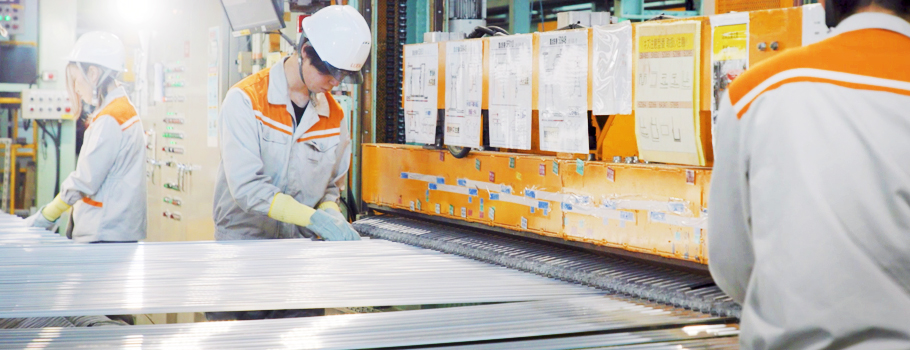
Three expressways intersect to the west of Japan’s Toyama Prefecture; each brings raw and scrap materials to the region’s aluminum producers and transports newly smelted ingots to global markets.
Aluminum is an important part of industry here. But innovation is disrupting business-as-usual, seeking new ways of preserving resources and embracing a more sustainable future.
Inside LIXIL’s Oyabe Plant in the prefecture, furnaces reaching blistering temperatures of 1,100°C melt down aluminum sashes and other waste materials collected from various locations. Once impurities have been removed, the recycled aluminum is reborn and turned into new products.
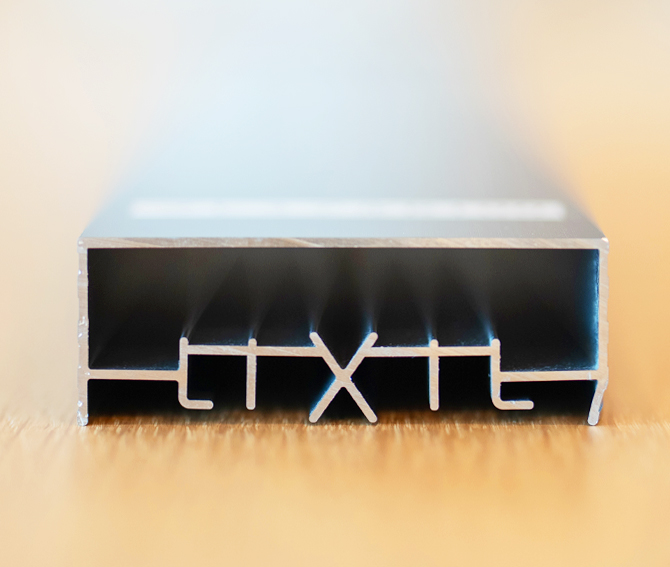
PremiAL R100, a 100% recycled aluminum material
The site makes PremiAL R100, a 100% recycled aluminum material for use in building materials and other applications. It’s been developed to meet growing global demand for more environmentally friendly output.
Last year, LIXIL announced PremiAL R70, the first product in the series that uses 70% recycled aluminum as a raw material, and began marketing it as a raw material for buildings.
As general manager of the Aluminum Materials Division at LIXIL Housing Technology (LHT), Naoki Ikegami and his team spearheaded the launch of PremiAL products.
“With the need to significantly reduce carbon dioxide (CO2) emissions throughout the supply chain, including raw material procurement, the use of recycled aluminum materials is attracting attention in a variety of industries,” Ikegami says.
Recycled Aluminum Can Beat the Heat
Look around you. While you may not always be able to see it directly, lightweight, durable and easy-to-process aluminum has become a ubiquitous part of daily life. And global consumption is projected to increase by more than 50% by 20501.
However, meeting this spike in demand creates a problem. Smelting new aluminum ingots is a heat-intensive, energy-guzzling and high-emissions business, even when using renewable energy sources such as solar power during the process.
And with bodies like the EU planning to impose a “carbon tax” duty on high-carbon goods imported into the bloc from 2026, the incentive to make products more sustainable has never been stronger.
That’s where recycling innovations come into play. Melting down used aluminum products and materials is less energy-intensive than producing new ingots as no smelting is required.
Making the Most of Valuable Resources
LIXIL began recycling aluminum from old buildings about 25 years ago, long before the term “carbon neutral” was coined.
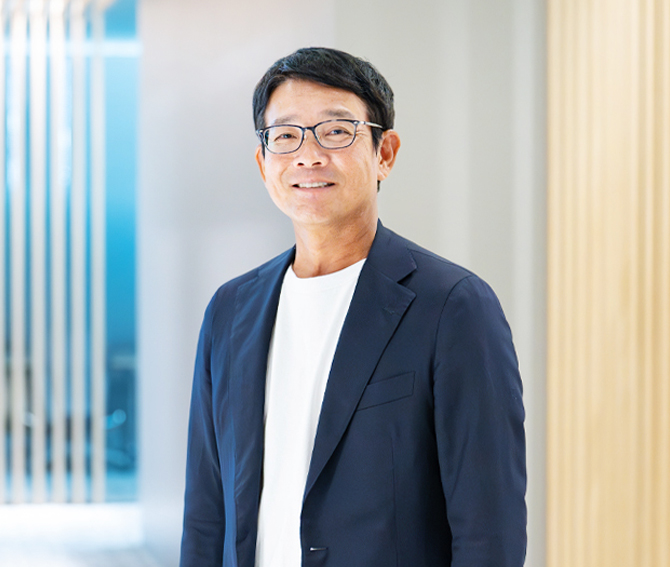
Naoki Ikegami, General Manager of the Aluminum Materials Division, LIXIL Housing Technology
“It all started with the concept of ‘Muda-ni-shinai’ – a Japanese term for not wasting something valuable,” Ikegami says. “It was our history of recycling that set us apart in the industry.”
This mix of innovation and experience led to the development of PremiAL R70, which is now manufactured in several regions of Japan, Thailand and Vietnam. This fall, the team is taking things to a new level by bringing PremiAL R100 to the market. LIXIL is one of only two companies in the world mass producing 100% recycled aluminum.
One Step at a Time
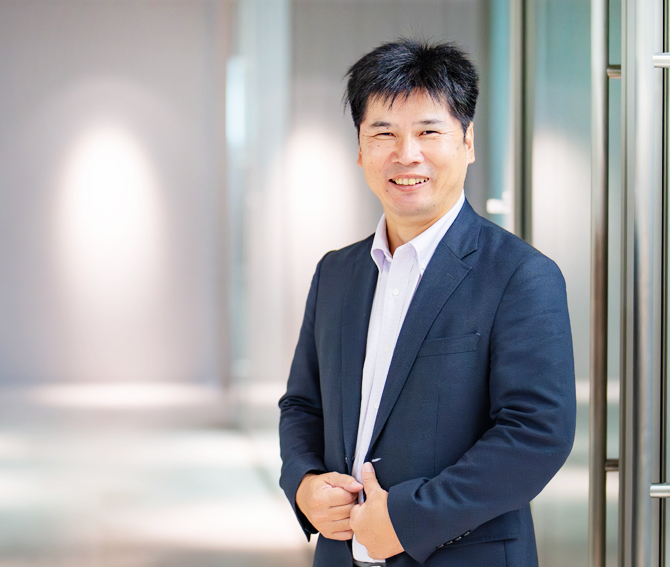
Naoya Tanaka, Aluminum Materials Division, LIXIL Housing Technology
“In the beginning, we took scrap aluminum sashes with screws, locks and other parts still attached, removed them by hand and sorted them for recycling,” says Naoya Tanaka of LHT's Aluminum Materials Division, who is in charge of procuring materials and the production technology for recycled aluminum at LIXIL. “Later, as we increased our recycling rate, we asked partner companies to help with collection, disassembly and sorting, and now have a stable supply of high-quality raw materials from all over Japan.”
The most difficult technical challenge was not only to increase the recycling rate, but also to ensure that the composition of the recycled aluminum was exactly the same as that of new aluminum.
“To achieve this, we needed a technology that could efficiently and thoroughly remove iron, stainless steel, zinc and other dissimilar alloys from the recovered materials,” Tanaka says.
More than a decade of research on sorting technology followed. Between 2009 and 2012, LIXIL worked with Waseda University and others as part of a NEDO (New Energy and Industrial Development Organization) funded project2.
Since then, the company has conducted its own research and development to enable the materials division to achieve the same level of quality with recycled aluminum as that made from ingots.
Converting Today’s Waste into Tomorrow’s Products
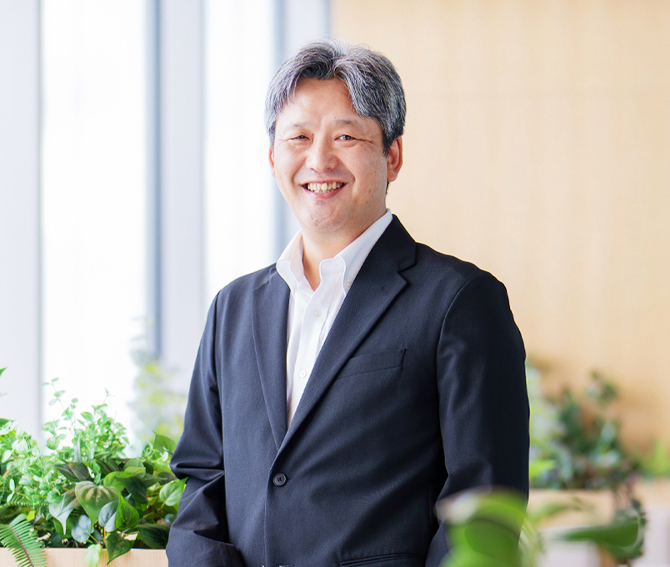
Kenji Hosoi, Sustainability Planning and Promotion Department, LIXIL Housing Technology
“We are actively promoting the use of recycled materials for resin and wood used in our products, and we aim to achieve a 100% recycling rate for aluminum products by 2030,” says Kenji Hosoi of the LHT Sustainability Planning and Promotion Department at LIXIL.
As part of its environmental strategy, LIXIL is aiming for a 30% reduction in Scope 3 (indirect emissions from up and down the company’s value chain) by FYE 2031, compared to FYE 2019, and to become carbon neutral by 2050.
And when it comes to using aluminum virgin metal ingots in LIXIL’s products, less is definitely more. According to a United Nations report, as of 2021, the building sector accounts for 37% of global carbon emissions. Reducing carbon emissions in the building sector will be key to realizing a carbon neutrality.
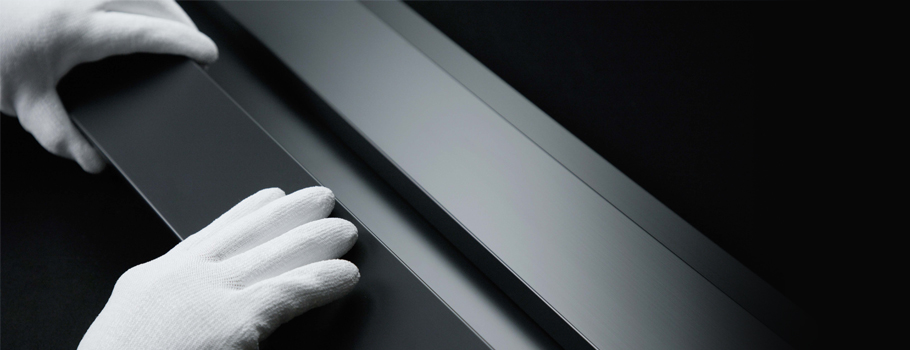
PremiAL products can significantly reduce embodied carbon emissions – associated with processing, transportation, construction, renovation and disposal of building materials – for construction companies, building materials manufacturers, developers, and building owners. LIXIL’s solutions have until now focused more on reducing operational carbon emissions – that is, emissions emitted while a building is being used. This includes making buildings more energy efficient by raising the insulation of windows, doors and walls.
The LIXIL team’s efforts have not gone unnoticed. PremiAL R70 and R100 are the only recycled aluminum products in Japan to receive the EcoLeaf environmental label, a third-party certification.
The R100 has also been verified by Japan Quality Assurance Organization, a third-party body that evaluates greenhouse gas emissions. Recycling requires only 3% of the energy required to produce new ingots, so using recycled aluminum as a raw material means approximately 97% of energy-related CO2 emissions can be reduced3.
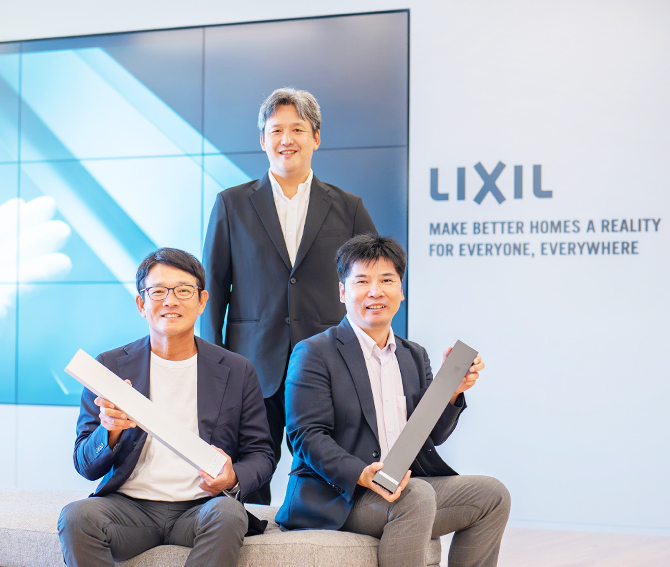
The company is certainly not resting on the progress it has made so far. By 2031, LIXIL intends to use only recycled aluminum in its products – a significant industry success by any estimation.
“We have succeeded in introducing PremiAL to the world,” Ikegami says. “But I don’t think we have succeeded yet; we are just at the beginning of the process.”
Our Stories
- Backing People and Passions to Drive Innovation
- How Toilets in Schools are Catalyzing Change in Communities
- Building the Future by Recycling the Past
- Reinventing Consumer Connections in the World's Largest E-commerce Market
- Tackling Household Water Inefficiency in a Water-Stressed World
- Plugging the Plumber Shortage
- Pioneering Solutions to a Sewage Crisis in Rural Alabama
- Meet the Citizen Developers Changing How We Work
- Design and Brand Identity Transformation at LIXIL
- Three Changes to Prepare Europe’s Sanitary Industry for Growth
- Three Steps to Creating an Inclusive Culture
- From Linear to Circular: Giving Products in Your Home a New Lease of Life
- Crafting Unique Experiences as well as Products
- GROHE X: A Digital Brand Experience
- Design-led Innovation Delivering True Value
- Responsible Use of Plastics
- Empowering our People for an Agile Future
- Turning the Waves of Change into Opportunities
- SATO Tap: a New Handwashing Solution for All
- New Ways of Working Take Flight at LIXIL
- INAX: Rituals of Water
- Refreshing our sanitation targets, standing firm on our commitments
- Developing Attractive and Differentiated Products
- Conserving Water: The New Normal
- Insulating For a Warmer and Healthier Home
- Open Kitchen, Open Communication
- Tackling Open Defecation in India
- Shaping the Future of Faucets, One 3D Layer at a Time
- Bathed in Culture and Tradition
- Remodeling the Housing Market
- LIXIL's AQUA CERAMIC makes bathroom stains a thing of the past
- The Technology of Water
- Tackling Challenges in Global Sanitation and Hygiene
